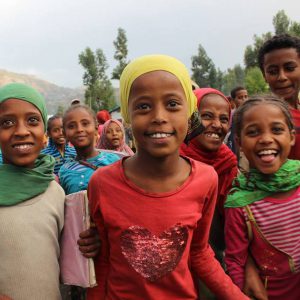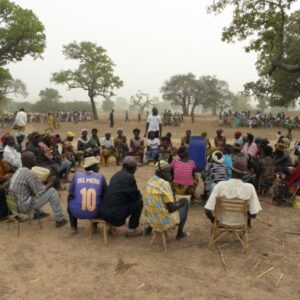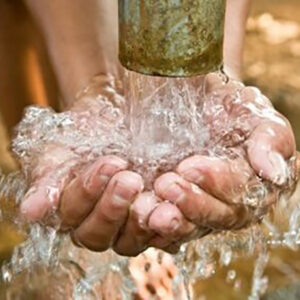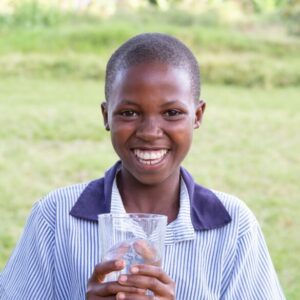International (MNN) – More and more missionaries around the world are learning just how valuable orality method is when working with oral people groups. As we learn more about orality, some mission groups like Living Water International are finding applications that minister to people’s emotional and physical needs as well as their spiritual needs.
“We’re on an amazing global learning journey in relation to orality because most people just think about storytelling or bedtime stories for children,” Jerry Wiles of LWI says.
Right now, they’re transitioning from introductory orality training to more in depth and advanced training as they discover what is working best in national and international strategies.
Sociology, psychology, theology, and missiology are all a part of their study of orality. In fact, there is quite an incredible network of people learning about it together to make it the most effective it can be in sharing the Gospel.
The name for all this study, an official term, is orality missiology. “Orality missiology is bringing together the best learning and resources around these broader topics,” Wiles says.
Orality as a foundation to meet spiritual, emotional, and physical needs
Integral mission is the concept of ministering to people holistically. Instead of just preaching the Gospel, for instance, LWI desires to exemplify it. In other words, they’re underlining a life-saving message with their actions of love that provide for the physical needs of people.
Orality fits right into this structure. Wiles says it is applicable in issues of social justice, trauma counseling, and community development. It also is helpful in the realms of business as missions and leadership development.
Orality as an act of consideration
Have you ever been asked to read a short story in a second language you were just beginning to learn? At worst, you might be able to pick out familiar vocab words and verbs. At best, you understand some phrases and after a few times through, you get the gist. But much of the meaning slips through the cracks.

Orality is bringing the Good News in a way they can understand. (Photo courtesy of LWI via Facebook).
Comprehending an idea in another language is a multiple step process and even after years of training it doesn’t come as easily as it would in your first language. Many mission groups refer to your first language as your heart language. Comprehension of words and phrases is automatic.
You can see how trying to comprehend the Gospel for the first time by hearing it in a second language would be extremely difficult.
Orality is taking this consideration to the next step. In the West, we’ve become comfortable with written communication. It’s how we study God’s Word, it’s how we tell others about Jesus, it’s how we talk to each other on a regular basis.
In many cultures, however, even if there is a written language, it’s not used in daily life. And so, translating the Gospel into their written language, if they have one, might not really be effective.
Wiles explains that the heart language for oral cultures is storytelling. “When we think about the Great Commission, being to communicate the Gospel, the Good News to every person on the planet and make disciples among all people groups– in order to do that we have to bring the message and the methods in ways the receptor culture […] can hear it understand it, respond to it, process it, remember it, and reproduce it.”
Orality: creating a place to share
The orality method is different from traditional preaching. It is back and forth communication in a small group of people.
Wiles says when you get a small group of people together to tell Bible stories, people open up: “They retell the stories, they discuss the stories—what does it mean, how does it apply to our lives—they share their experiences and their stories.”
There is room for people to interact and participate in the discussion rather than just listen.
This could be especially helpful in post-conflict regions where people are suffering trauma. In a small group discussing the Gospel through story, they might feel better able to share their struggles. This setting can help people understand each other better, as well.
Wiles says in a southern African church, church leaders and pastors were able to uncover a situation going on with the youth that they previously didn’t know about. Because of orality, they were not only able to discuss what was going on, but they were able to address it.
“Learning the stories allowed them to open up and share more,” Wiles says of the children.
Practical orality
Wiles recently visited Liberia to meet with pastors and learn how the country was doing after the initial outbreak of Ebola two years ago. Despite the widespread outbreak, known to be the worst in history, the country was able to get things under control.
Wiles says, “They were very pleased with the way they could deal with it and the resources that were mobilized to assist them and the partnerships that came together.”
He says orality even played a part in handling the situation. “We found out that they were able to mobilize resources in working in partnership with other organization—mostly faith based organizations– in combating Ebola.”
A major part of fighting Ebola was getting preventative information into the hands of citizens.
“The orality based instructions work better than just passing out pamphlets or using text-based materials,” Wiles says, explaining that they did pass out these materials in addition to the verbal information.
By adopting their method of communication, storytelling, health officials and ministries were able to give villagers reproducible information to share with their families and neighbors.
Wiles says West Africa is primarily made up of oral cultures and so they receive information better this way.
Orality and you
If you’re interested in learning more, Living Water International is offering multiple trainings over the next few weeks and beyond. Click here to see those dates and to learn more.
« Orality Breakouts – Chapter 9 – A Ch...Intentional Listening & Prayer »










